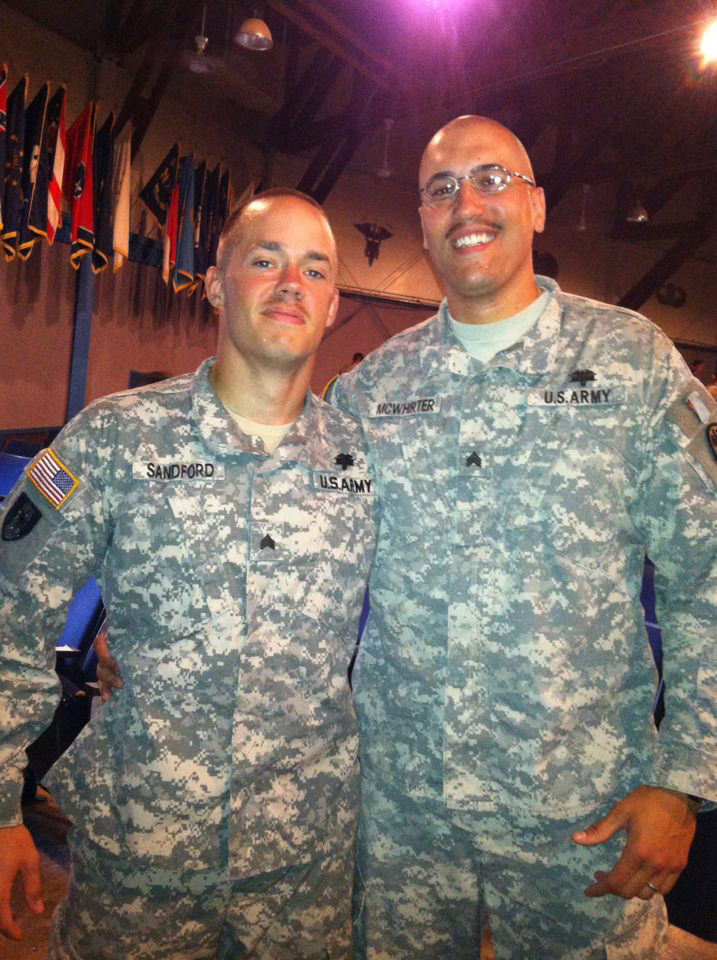Two WRAIR Soldiers Earn Expert Field Medical Badge

Two Noncommissioned Officers from Walter Reed Army Institute of Research were awarded the Expert Field Medical Badge after successfully completing all requirements at Camp Bullis, Texas, June 15. Recognized as one of the U.S. Army's top research facilities, WRAIR is a subcommand of the U.S. Army Medical Research and Materiel Command.
Following an intense competition involving both written and hands-on medical skills assessment, Sgt. Kelly McWhirter and Sgt. Michael Sandford each became recipients of the significant badge. Out of 87 candidates who attended the EFMB class, only 10 Soldiers completed all the necessary requirements to earn the badge, resulting in an 11.5% pass rate.
McWhirter enlisted into the Army in July 2007, and his first duty assignment was at WRAIR, where he has been since November 2008. He is currently serving as the noncommissioned officer-in-charge of the Department of Behavioral Biology in the Center for Military Psychiatry and Neuroscience Research, where he is a neuroscience research assistant. He holds a Bachelor's degree in Exercise Physiology from the University of Northern Colorado, and he is nearing completion of a Master's degree in Clinical Research Administration from Trident University. Upon earning his Master's degree, McWhirter would like to attend the U.S. Army Airborne School en route to entering medical school, all in the hopes of earning a commission as a physician in the U.S. Army Medical Corps.
Joining the Army in May 2007, Sandford has been a member of the WRAIR team since 2008. He has worked in the Division of Retroviriology, Headquarters Company, and the Entomology branch. Sandford currently serves as the Environmental Compliance and Chemical Hygiene Officer for the Entomology branch and the NCOIC of the WRAIR Combatives program. In October 2009, he deployed with the 28th Combat Support Hospital in support of Operation Iraqi Freedom/Operation New Dawn. Sandford's career goals are to complete his Bachelor's degree, attend the U.S. Army Airborne School, become an instructor, and eventually retire from the Army with the highest rank that he can achieve.
The EFMB was established in June 1965 as a Department of the Army special skill award for the recognition of exceptional competence and outstanding performance by field medical personnel. In the nearly fifty years since its establishment, over 100,000 Soldiers have attempted to earn the Army Medical Department's most prestigious peacetime badge. The overall EFMB pass rate for 2011 was 17%.
 An official website of the United States government
An official website of the United States government
 ) or https:// means you've safely connected to the .mil website. Share sensitive information only on official, secure websites.
) or https:// means you've safely connected to the .mil website. Share sensitive information only on official, secure websites.


